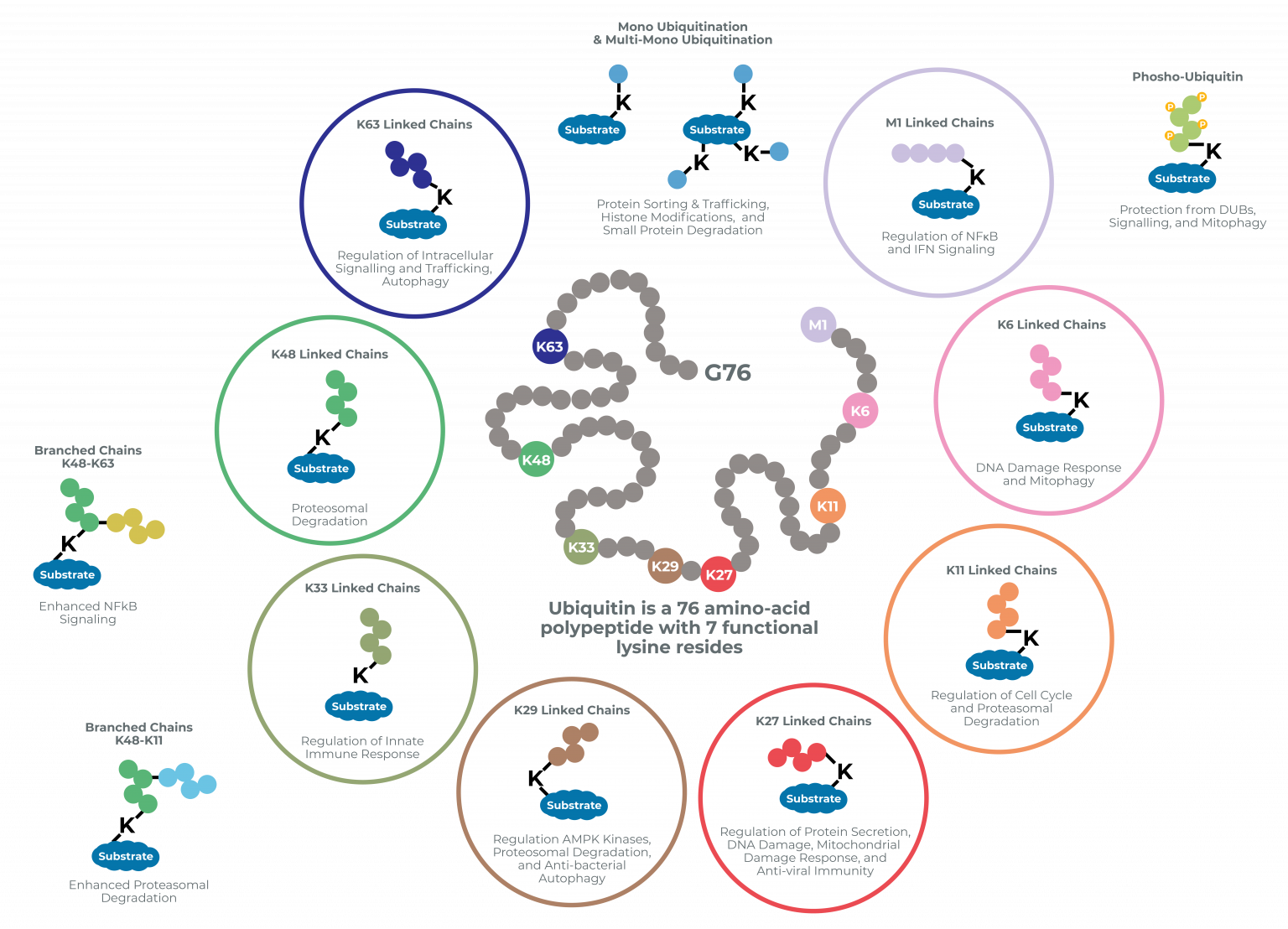Ubiquitin is a small highly conserved regulatory polypeptide (76-amino acids and 8.6kDa) found ubiquitously in most tissues of eukaryotic organisms. The ubiquitination pathway, where conjugation of ubiquitin via its C-terminus to an ε-amino group of lysine on a target protein can be key to many cellular signaling pathways. Conjugation events as either a single ubiquitin to a target protein (monoubiquitylation) or a chain of ubiquitin’s (polyubiquitylation) have diverse functions. Polyubiquitylation utilizing any of seven lysine residues (K6, K11, K27, K29, K33, K48, K63) on the surface of ubiquitin govern variety of biological process ranging from proteolysis to DNA damage tolerance. Enzymatic conjugation of ubiquitin is performed by a series of enzymes — Ubiquitin activating enzyme E1, ubiquitin conjugating enzyme E2, and ubiquitin ligase E3. Ubiquitylation of proteins is reversible in cells; both mono- and polyubiquitylated chains are cleaved by hydrolysis catalyzed by deubiquitylases (DUBs).
Lifesensors has been at the forefront of developing innovative solutions for drug discovery related to the Ubiquitin Proteasome System (UPS). We offer a large collection of UPS related tools with a multitude of ubiquitin enzymes, chains, and assays to assist you in your research. Our experience and extensive knowledge of E1, E2, E3 enzymes, DUBs, and the accompanying assays will be able to simplify the process of confirming enzyme activity and UPS related drug discovery. There are a variety of ubiquitin derivatives for your research, including DUB-resistant poly-ub chains (for binding interactions studies), ubiquitin conjugates (for DUB assays and screening), selective ubiquitin chains (di-, tri-, and tetra- for DUB specificity and binding assays), and site-specific lysine ubiquitin mutants (for E3 ligase and DUB selective assays). We offer about 35 E2 enzymes, 30 E3 enzymes, and 35 DUBs that are well characterized with custom expression available.
Advantages of Lifesensors Ubiquitin & Ubiquitin Chains
- Patented IQF and CHOP2 reporter assays to study DUBs
- Selective ubiquitin chains for DUB specificity
- Heterotypic chains for PD research (K6, phospho K6)
- Isotopically labeled Ubiquitin and Ub-mutants for NMR studies
- Panel of assay that can identify compatible E2-E3 pairs
- Customized services and products tailored to your research

